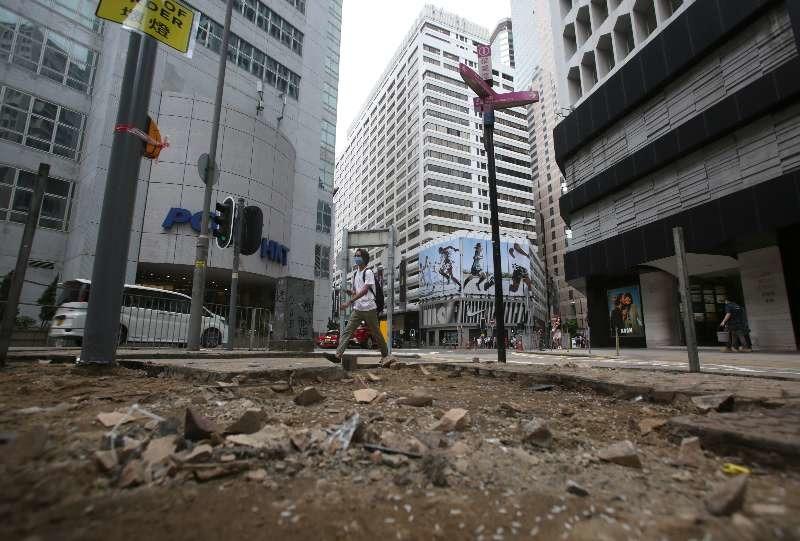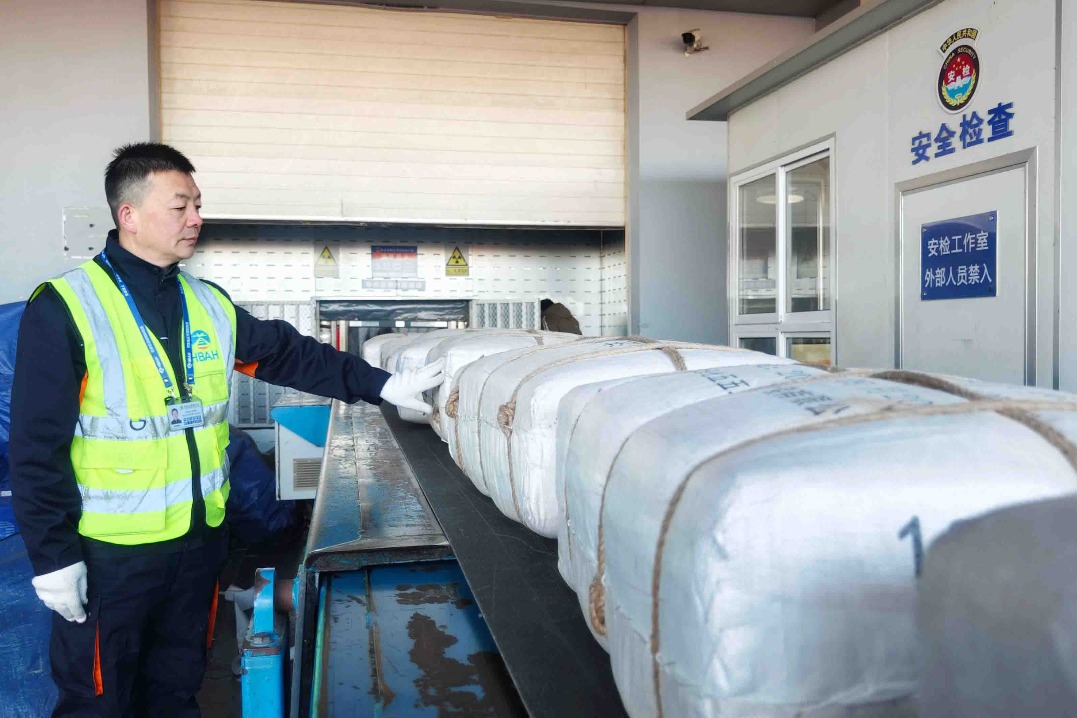Liaison Office slams protest violence in HK


The central government's Liaison Office in Hong Kong on Monday strongly condemned the violence and vandalism that ravaged the city's busiest districts the previous day.
The rioters' blatant advocacy of separatism and indiscriminate assaults of residents constitute a grave threat to both national security and public safety, the Liaison Office of the Central People's Government in the Hong Kong Special Administrative Region said in a statement.
What transpired at Sunday's unlawful assembly was yet more proof that Hong Kong is in urgent need of a national security law, the office added.
Unlawful rallies against the country's top legislature's proposal to enact a national security law for the city turned violent on Sunday, as protesters smashed shops and started fires along the major thoroughfares in Causeway Bay and Wan Chai.
Radical anti-government protesters displayed banners and chanted slogans advocating Hong Kong independence, and beat up people who disagree with their political views.
The resurgence of violence has renewed fears about a repeat of last year's social unrest, which has been temporarily subdued by the coronavirus pandemic. By the end of last year, the local economy had slumped into a recession.
The proposed national security legislation will alleviate the grave concern among business communities about the violent and terrorist forces attempting to mess up Hong Kong with the "burn with us" tactic, said Xie Feng, commissioner of the Ministry of Foreign Affairs in the Hong Kong Special Administrative Region, while briefing foreign consulates general and chambers of commerce in the city on Monday.
"The legislation will create a better law-based, more reliable and stable business environment for foreign investors," he said.
Xie explained that the proposed legislation targets only acts that threaten national sovereignty, unity and territorial integrity, including secession and subversion of State power.
"It is the small minority of criminals jeopardizing national security that will be punished, while the overwhelming majority of law-abiding Hong Kong residents will be protected," Xie said.
It will not hinder the foreign consular corps, chambers of commerce and media in the city, but will further improve the climate for exchanges and cooperation between Hong Kong and foreign countries, and protect the law-based operation of international businesses here, he added.
Xie stressed that the legislation will not change the "one country, two systems" policy. It will not change the capitalist system nor Hong Kong's high degree of autonomy, he added.
He also stressed it would be "unacceptable" if Hong Kong, as a part of China, could not fulfill its constitutional obligation to safeguard national security.
In another development, Secretary for Commerce and Economic Development Edward Yau Tang-wah said that the legislation can bring the city a stable and sustainable investment climate in the long run. The business sector's confidence is based on many factors, such as a successful practice of "one country, two systems", and a safe city free from terrorist-like activities and other acts that endanger national security, Yau elaborated.
In Yau's view, the national security law can reduce the risk of extreme violence and close the gap for the sake of Hong Kong's prosperity as well.
Angelo Giuliano, a Swiss financial consultant, agreed the law, which protects "one country, two systems", will ensure Hong Kong's long-term stability. Giuliano, who has lived in Hong Kong for three years, thinks some fears are unfounded. "It is for the sake for Hong Kong to maintain peace and prevent it from falling into chaos with the intervention of foreign hands," he said.
Noting it's important to explain and clarify the law and its impact to the general public, Giuliano said Xie's briefing about the legislation is a good way to let foreign ambassadors and investors better understand the issue.
Echoing Giuliano, Fabrizio Goldoni, a company manager, said he believes that the legislation won't change the "one country, two systems" policy in Hong Kong, and won't scare foreign investors away, as some media have alleged. The Italian, who has lived in Hong Kong for more than 20 years, noted that foreign companies still set up their offices in the Macao SAR and the Chinese mainland and do business there, and both places have a national security law.
Given that almost every country has laws to safeguard its national security, and Macao enacted its own such law more than 10 years ago, Hong Kong should not be an exception, Goldoni added.
- Gansu noodle team rushes aid to earthquake-hit Xizang
- Hebei sends winter supplies to earthquake-hit Xizang
- Shanghai Disney Resort ushers in the Year of the Snake with festive celebrations
- Chinese researchers develop green, effective pesticide formulation
- 1,211 aftershocks detected after Xizang 6.8-magnitude quake
- Great Wall's most dangerous section to launch 1st tourist route





































